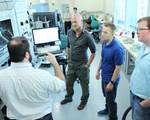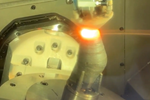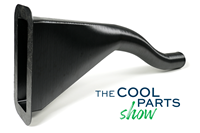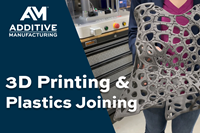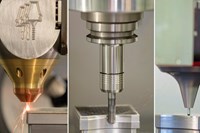With no need for molds or other tooling, additive manufacturing (AM) can deliver parts with less setup lead time than the existing supply chain, and with design innovations not possible through conventional methods. But for AM to be prepared to realize these advantages, it needs feedstock ready and waiting. Minimum order quantities may not apply to 3D printed parts, but scale can still be a limitation in acquiring the raw material.
Metal powders in particular can be a bottleneck. Part of the challenge is that most of the gas atomizers used to make 3D printable metal powders were not originally built for this application, and are also utilized to produce materials for other manufacturing processes such as metal injection molding (MIM). Additive manufacturing does not command the full capacity of its material suppliers, and therefore its users can find themselves competing against other industries and applications for the capacity to make the materials they need.
Easing this bottleneck is the goal for KBM Advanced Materials [supplier link?], a recently announced venture backed by Koch Minerals & Trading and supported by supply chain partner Sumitomo Corporation of Americas. Headquartered in Fairfield, Ohio, but with distribution capacity throughout the United States, the company functions as an “inventory bridge” connecting metal powder suppliers with buyers in additive manufacturing and other advanced manufacturing industries through an online e-commerce portal.
“We buy it in tons and ship it in kilos,” says Kevin Kemper, CEO, to summarize the model. KBM Advanced Materials buys, stores and ships metal powders from multiple suppliers, which are all sold under the original manufacturer’s label. KBM’s bulk orders allow for passing cost savings onto buyers while providing a reliable, fast and easily accessible source of material. Customers in the lower 48 United States can schedule regular shipments of material or place orders as-needed for delivery within days through the e-commerce site. (Delivery to other parts of North America is also possible by ordering directly with a representative.)
The option to buy powder from a distributor is advantageous, Kemper says, particularly for small- to medium-sized service bureaus and additive manufacturers that may not keep large amounts of material on hand and could have difficulty placing a rush order of powder to fill a production run. Working through KBM, AM users like this will be able to order and receive powder in a timely fashion from the nearest distribution center.
“Not every job in AM is a planned job, and smaller orders of powder are harder to fill,” Kemper says. “This model makes procurement easy,” even when material orders are placed unexpectedly.
The platform is launching with Carpenter Additive, Höganäs AB and Tekna Holdings AS as its first material suppliers, and offering a selection of stainless steel, nickel, aluminum, titanium and cobalt alloy powders to start. In addition to distributing these and other powders, KBM also expects to be active in recapturing excess material. The company will accept back overused powder for refurbishment or recycling, and credit the customer for the material to incentivize these returns.
Later this year, KBM expects to expand its distribution model to Europe, and in 2022 to Asia. More types of materials and other 3D printing consumables could also travel along its distribution network.
“Additive manufacturing is difficult enough already,” Kemper says, “so we’re looking for and reducing the friction points.”


.jpg;width=70;height=70;mode=crop)

